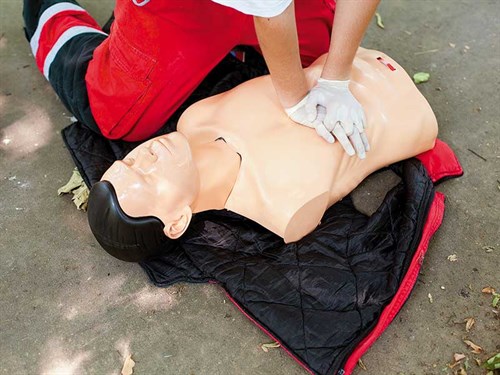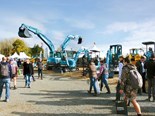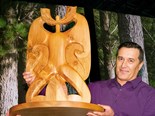Do you have a first-aid certificate?
In his latest column, Patrick Cox talks about the forestry industry and the importance of first-aid knowledge
How many of you have a first-aid certificate and how often have you done a refresher course? Over the years, it has amused me that nobody has ever asked whether I can stand the sight of blood?

What good is a first-aid certificate if the first thing you do is pass out when you see blood? That’s not to say every emergency is a bloody mess.
Those out there operating their own logging operations have sat down with their crew and analysed their strengths and weaknesses in an emergency.
The thing is, in any crew, you never know who might be injured. Do you have a contingency plan like the All Blacks when Sonny Bill Williams got a red card?
There is always someone who has instinctive reactions and can take control and direct others to do certain jobs, and the guy who cannot stand blood is immediately put on radio and phone duties.
How you handle those first few minutes could be vital to the injured worker. Making the immediate area safe to deal with the injured is paramount. Under no circumstance should you put your own safety and those of the rest of the crew in jeopardy.
Having completed another first-aid course last month at the instructions of the company I work for, my thoughts were how many times do we have to get a first-aid certificate?
I think it needs to be renewed every two years. Anyway, off I went to the course that was being held at St John, thinking what else would I need to know, as I have attended first-aid courses for the past 35 years.
However, whenever I attend a training session, I try to at least find something I did not know.
Importance of quick thinking
The course was informative and the tutor was good. I learnt new ways to administer first aid. Last year, in my travels, I came across two couples standing beside their motorbikes parked up on the side of the road. One guy had been stung on the wrist.
He was going into an anaphylactic shock, as seen a lot in such situations, and the wife and the friends were a little at sixes and sevens. The phone coverage was not great and the one on the phone was in a panic mode. When I reached there, I took over the phone duties, assessed the situation, and got the wife and the friends to help me.
Once I knew it was a bee sting, I asked them to stop all the logging trucks going past and enquire if the drivers had antihistamines. Most drivers carry them, as many a truckie has been stung through the window of their truck.
As luck would have it, we managed to get two tablets from a passing truck and gave it to the biker. He was pretty much out to it by this stage. Within 10 minutes, the biker was starting to recover, much to everyone’s relief.
At the first-aid course, I asked the tutor if we didn’t have antihistamines, what was the second-best alternative? Bee stings can be life-threatening and your throat can swell up. In such a case, a cold compress around the area will help.
We have plenty of creaks, drains, and rivers around us and applying cold water might just be enough to save lives and reduce swelling until help gets there.
CPR
Another topic our intructor covered was CPR. When doing CPR, our tutor said it was entirely up to the individual if they wanted to apply mouth to mouth. It does help but keeping up with the compressions on the chest is the best option.
Doing CPR over a long period of time can be quite tiring, so it’s handy if you can get someone to help.
One other problem I was interested in was what do you do if you are on your own and choke? I was suggested to get a kitchen chair or the like and lean into it quickly against the back of the chair with your stomach to create a whoosh of air from the lungs to drive the blockage out of the throat.
Remember, if you are on your own, you will not have much time to think, and you will need to act fast.
What can we do?
If you look up the meaning of the word ‘accident’, the definition that pops up says: "an accident, also known as an unintentional injury, is an undesirable, incidental, and unplanned event that could have been prevented had circumstances leading up to the accident been recognised and acted upon prior to its occurrence. An unfortunate incident that happens unexpectedly and unintentionally, typically resulting in damage or injury."
We all know some accidents can be prevented through good training and experience. Then there are other accidents such as being stung by a bee while on the road.
You can also never eliminate accidents in a workplace; only minimise the risk. For more information on first-aid information and courses, visit St. John's website.
You could either sign up for one of their courses or check the online tips, videos, and training sessions.
Keep up to date in the industry by signing up to Deals on Wheels' free newsletter or liking us on Facebook.
















